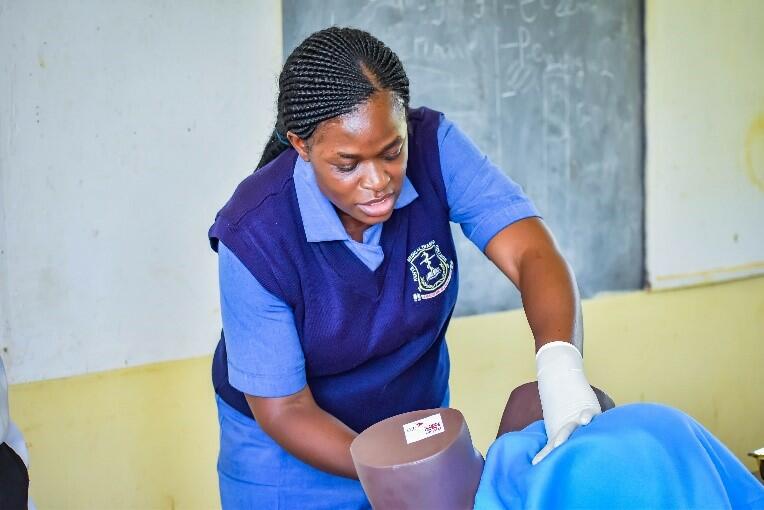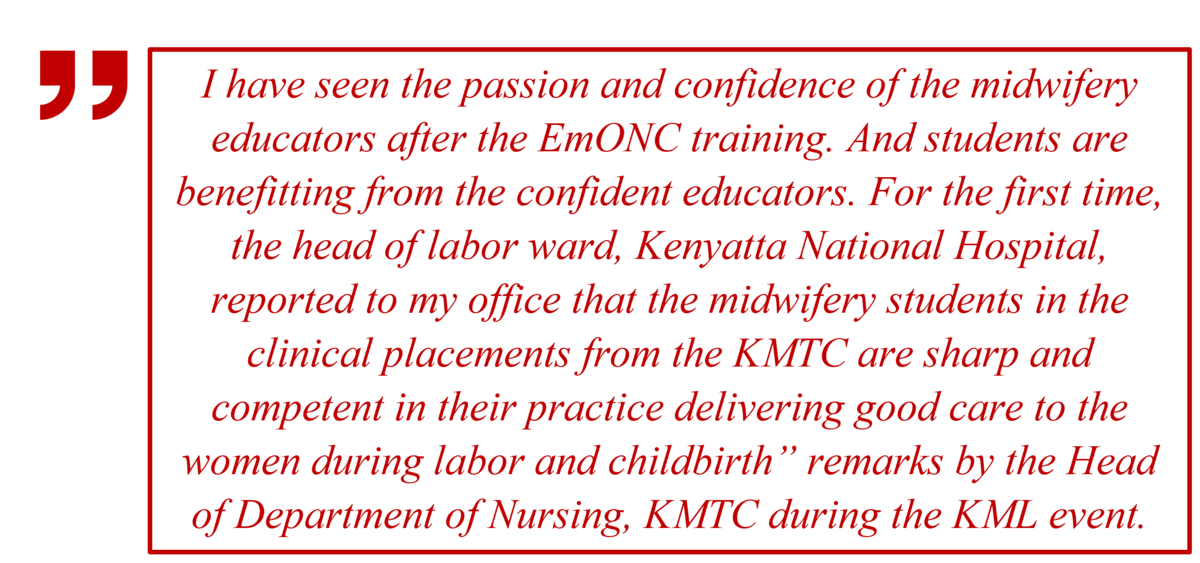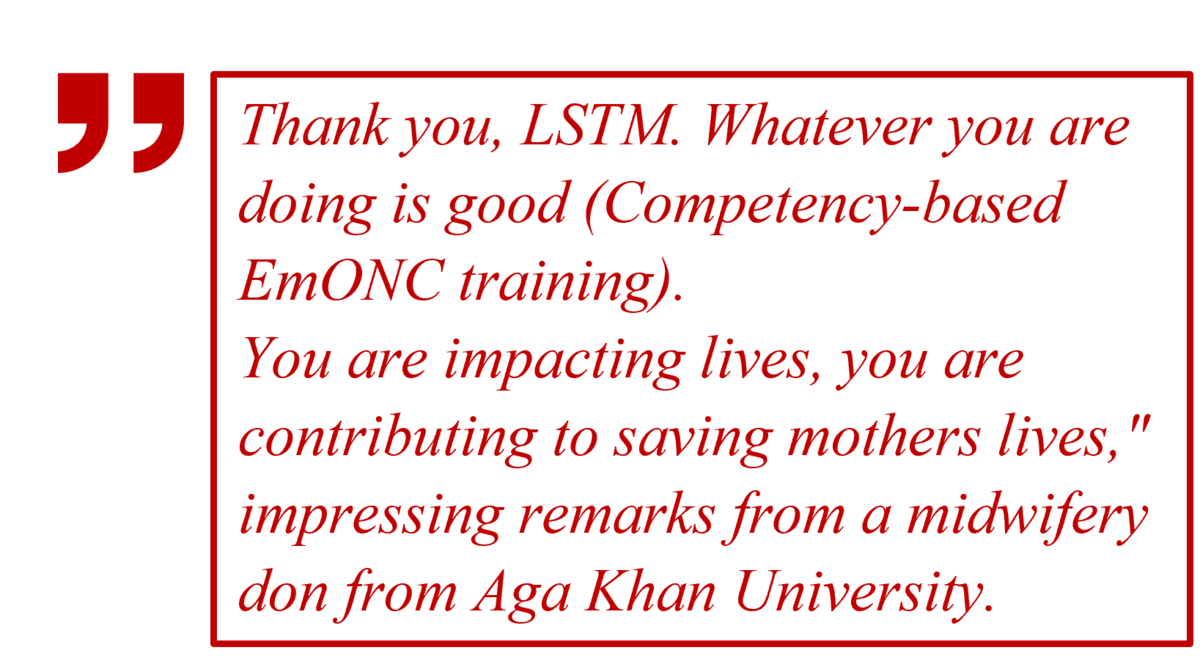
Background
Midwives educated to international standards, licensed, and supported by interdisciplinary teams and work within an enabling environment, can deliver ~ 90% of essential sexual, reproductive, maternal, newborn and adolescent health interventions across the life course. A Lives Saved Tool modelling study shows that achieving universal coverage of midwifery delivered interventions including skilled attendance at birth, provision of emergency obstetric and newborn care (EmONC) and family planning, by 2035 could save up to 4.5 million mothers and babies per year. Despite the high impact midwifery interventions on maternal and newborn health, International Confederation of Midwives’ 2021 State of the World Midwifery Report provides evidence that midwifery education and training in low- and middle-income countries (LMICs) remains grossly under-invested with variation in the quality, content and duration of training between and within countries. These under-investments include lack of skilled midwifery educators to deliver clinical teaching, lack of access to clinical sites and connection with clinical practice, and lack of opportunities for the educators to update their knowledge and skills. This is even though ICM recommends that at least 50 percent of midwifery education should be practice-based recommends that at least 50 percent of midwifery education should be practice-based and provide experience in clinical and community settings, in direct contact with women and newborns. Therefore, educators must possess the recommended midwifery educators’ core competencies by WHO to deliver the competency-based training.
Strengthening midwifery education, training, and practice
To strengthen midwifery education/training and practice, WHO’s Strengthening quality midwifery education for Universal Health Coverage 2030: Framework for Action recommends that midwives and midwifery educators should participate in relevant mandatory accredited continuous professional development (CPD) programmes for safe, competent and effective practice to achieve universal health coverage (UHC) & maternal and newborn health (MNH) SDGs. However, evidence from a systematic review in 2020 revealed that only 16 (34.7%) WHO Afro region states had instituted CPD points as a mandatory measure to ensure up-to-date skilled, relevant practitioners. This clearly demonstrates that CPD is under-utilised and therefore need to strengthen this critical opportunity for a competent midwifery educator and graduates.

Liverpool School of Tropical Medicine (LSTM) supports implementation of pre-service interventions that focus on improving the quality of pre-service midwifery and reproductive health education and training in Kenya. The second of four Knowledge Management and Learning (KML) events in the final year of the FCDO Kenya MNH programme, was hosted by Garissa County on 13th and 14th June 2022. The event brought together stakeholders from the Ministry of Health, nursing and midwifery training regulator – Nursing Council of Kenya (NCK), Kenya Medical Training College (KMTC), Midwives Association of Kenya, Kenya Obstetrical and Gynaecological Society, midwifery training universities, implementing and neighbouring counties, and development partners in Kenya. The aim of the event was to share lessons learnt in the implementation of the MNH programme with a view of enhancing sustainability measures that will be adopted for implementation beyond the programme.
Key achievements
LSTM supported the national MoH’s-led pre-service taskforce to coordinate the updating and standardisation of the pre-service emergency obstetric and newborn care (EmONC) training content in the syllabi and curricula, at national level. Key achievements include the following:

- All mid-level and university nursing and midwifery and reproductive health training guidelines (syllabi/core curricula) were reviewed and updated integrating the competency-based EmONC by the NCK, Clinical Officers Council and KMTC.
- Equipped/replenished Midwifery and Reproductive health training institutions (four KMTCs and Moi University) with obstetric and newborn care training equipment to support skills teaching and transfer linked to the updated curriculum.
- Capacity strengthening of 313 Midwifery and Reproductive health educators from 101 public/KMTC, private and faith-based mid-level training institutions and 30 midwifery educators from 27 universities to deliver the updated curricula.
- Midwifery and clinical medicine (reproductive health specialty) educators from mid-level training colleges have increased confidence to deliver EmONC within the updated pre-service curriculum.

- Midwifery educators from universities have increased knowledge, skills and confidence to teach EmONC within the updated achelor of Science in Nursing curriculum.

- Multi-stakeholders from LSTM’s Quality of Care unit in collaboration with the UNFPA Midwifery branch, in collaboration with the Nursing Council of Kenya, and midwifery educators in Kenya have developed the first blended learning midwifery educator CPD package for sustaining and improving the educators’ competencies in the delivery of their teaching, assessments, mentoring and feedback to students.
Midwifery educator CPD programme
Midwives and midwifery educators are now required to participate in CPD by either their employers or regulatory bodies to keep updated. For effectiveness of the CPD programmes, the programmes must align to the specific needs of the country and profession and translate into practice. These programmes should be accredited by the regulatory bodies or professional associations to ensure they address a specific knowledge or skills gap, are relevant and increases the legitimacy of the CPD and not taken only to meet regulatory requirements rather than to close a competency gap. The developed midwifery educator CPD package will be delivered through the mandatory 20-hour self-directed online modules on reflective practice, teaching pedagogies, assessments, mentoring and providing effective feedback. Stakeholders from the MOH, NCK, KMTC, training universities and KOGS were taken through a live demonstration of the self-directed online modules during the KML event. Other CPD content will be delivered through webinars and short 2-day face-to-face practical sessions focusing on upskilling midwifery educators on practical aspects of teaching clinical – EmONC skills.
What next?
There is need to sustain and improve the knowledge, skills and confidence of midwifery educators to deliver the updated competency-based midwifery education and training curriculum. Midwifery educators work within an enabling environment to be effective, this way they can produce graduates that have ICM competencies for practice within the ICM Scope for Practice. The enabling environment should cover training, recruitment, and retention, CPD, teaching resources and aides all meeting the ICM global standards for midwifery education. A long-term strategy to produce competent midwifery graduates and a resilient skilled health personnel workforce that will contribute to a reduction in preventable maternal and newborn morbidities and mortalities. A mapping and analysis of existing midwifery education programmes against the ICM global standards for midwifery education and the WHO midwifery education competencies, will facilitate the development of a road map to improve such programme.
The midwifery educator CPD programme developed in Kenya will be finalised and accessible for all educators to upskill their knowledge and skills. The NCK and KMTC should provide a sustainable platform for all the educators to access and participate in the accredited CPD programme. This strategy is critical to ensuring high quality of skilled health personnel at graduation in LMICs.